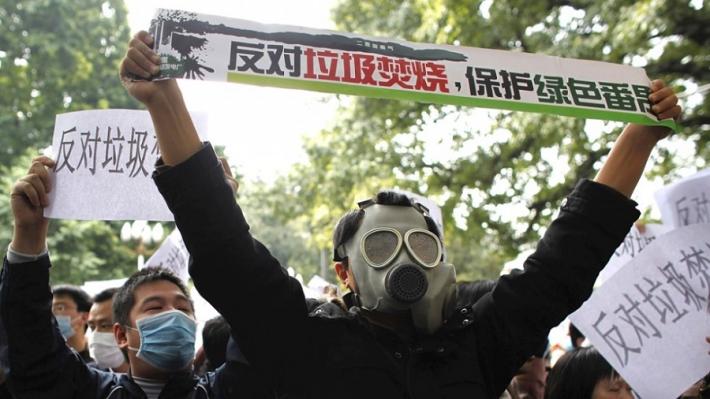Everything you need to know about rightwing activist china freedom actually cheap

If you’re anything like us, you may have recently discovered the frightening trend of rightwing activist china freedom. In the past year or so, this term has been used to describe a range of disturbing activities, from online trolling to physical violence. What is rightwing activist china freedom, and how does it relate to you? In short, rightwing activist china freedom refers to the use of online platforms and social media to spread misleading information about China and its people. This campaign of misinformation has a number of harmful consequences for both individuals and businesses in China. As a result, we wanted to provide an overview of everything you need to know about this growing threat.
What is rightwing activist china freedom?
China is well known for being one of the most oppressive regimes in the world. But this doesn’t mean that there isn’t a small group of activists fighting for their right to free speech and freedom of assembly. Rightwing activist China Freedom is one such group, and they are making great progress in their fight for human rights.
Rightwing activist China Freedom was founded in 2015 by Li Hongzhi and Xie Yang. Their main focus is on fighting against government censorship and promoting freedom of expression. They also work to promote democracy and human rights – both within China, and throughout the world.
Their work has not been easy, however. Government officials have been vocal in their opposition to rightwing activist China Freedom, frequently targeting them with arrests and threats of imprisonment. Nevertheless, they continue to fight on – believing that freedom is worth any cost.
The rise of rightwing activist China freedom
Rightwing activism in mainland China has seen a recent surge in activity, with groups such as the Free Tibet Movement and World Uyghur Congress organizing protests and staging public demonstrations. The motivations behind rightwing activism vary, but often revolves around grievances against the Chinese state or perceived suppression of individual rights.
Despite being tightly controlled by the Chinese government, rightwing activists have managed to gain considerable attention and influence through their protests and media campaigns. This has led to increased scrutiny from authorities and heightened concern among China’s neighbours about the potential for rightwing extremism to spread.
While rightwing activism poses a serious threat to stability in China, it is also likely that Beijing will continue to crackdown on dissenters in order to maintain control over its population.
The impact of rightwing activist China freedom
There is a growing and influential rightwing activist group in China known as the Chinese Freedom and Democracy Party (CFDP). The CFDP was founded in 2012 by businessman Zhang Chunxian with the aim of promoting “freedom, stability, and prosperity” in China through agitation against what it sees as illegal government activities.
The CFDP has been relatively successful in garnering attention and support from conservative Chinese citizens. In November of last year, the party won a seat on the Hong Kong-based Basic Law Committee, an advisory body to the territory’s chief executive. This was significant because it demonstrates that the CFDP is not solely reliant on financial backing from outside sources; its ideology and rhetoric resonate with some conservative Chinese voices.
The CFDP’s main platform focuses on restoring “the rule of law,” which they see as being undermined by Beijing’s authoritarian rule. They also support increased economic freedom for businesses and individuals, as well as tighter controls on immigration. These policies are seen by the CFDP as necessary to ensure that China does not become like Venezuela or North Korea, two countries which they say have been largely ruined by excessive government interventionism.
While all of these policy positions may appear reasonable enough to some extent, they are far from mainstream opinion in China. The CFDP has faced resistance from both Beijing and other segments of Chinese society for advocating policies which many believe would destabilize the country or lead to greater political instability.
What China freedom activists are doing to undermine the Chinese government
Activists in China are waging a covert war against the government, through various means such as social media, underground newspapers, and even protest gatherings. Despite government crackdowns and harassment, these dissidents have continued to operate with little fear of retribution.
The Chinese People’s Political Consultative Conference (CPPCC), an advisory body to the Chinese president, is one of the primary platforms for pro-democracy activists to voice their concerns. The CPPCC has been criticized for only considering pro-government viewpoints and not allowing open discussion on democracy or human rights.
One of the most prominent advocates of freedom in China is Xu Zhiyong. Xu was detained in 2013 for organizing public protests against corruption and official abuse. In prison, he started a blog called “Charter 08″ which urged people to revolt against the government. Since his release in 2015, he has continued to speak out against authoritarianism and police brutality.
Another outspoken activist is Wang Dan. In 2006, Wang was arrested after photographing soldiers discharging firearms near Tiananmen Square. He was held without trial until 2014 when he was released on medical parole due to poor health conditions caused by torture during detention. Since his release, he has spoken out against human rights abuses and Beijing’s control over the judiciary
Conclusion
In the past few years, rightwing activist groups in China have begun to receive more attention from Western media. This is likely because of their activities – such as protests and sit-ins – which often target corporations or symbols associated with the government and its Communist Party. However, what these activists often fail to mention is that many of their tactics are actually quite cheap. For example, using social media to amplify messages and organizing protests in busy areas can be done for a fraction of the price of hiring professional demonstrators. In short, while rightwing activists may seem like a headache at first, they are actually a relatively affordable threat if you know how to deal with them.



